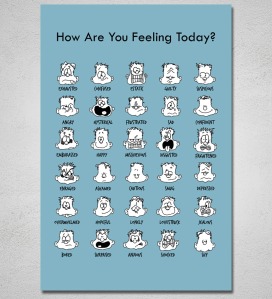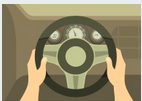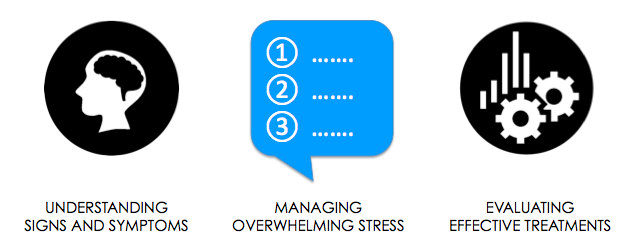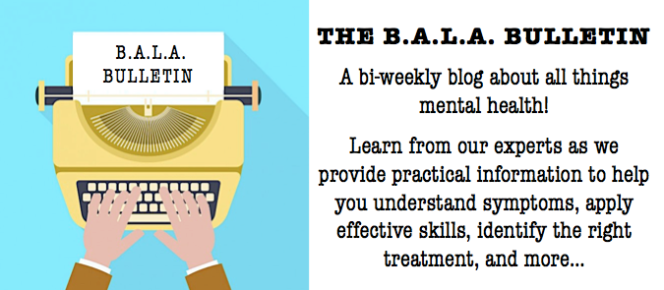Treating Depression
Signs of Depression
You may have heard people say, “that makes me depressed,” or “I feel so depressed,” but what is the difference between being sad and being depressed? An emotion like sadness is usually temporary, lasting seconds or minutes. However, clinical depression includes feelings of sadness, as well as other symptoms, that last two weeks or more. The Diagnostic and Statistical Manual of Mental Health Disorders lists common symptoms of depression as including:
- Depressed mood most of the day, almost every day
- Decreased interest or pleasure in activities on most days
- Weight loss or gain
- Sleeping too much or too little
- Feeling agitated/keyed up or really slowed down
- Loss of energy or fatigue
- Difficulty concentrating
- Thoughts of death *
Depression is a common and serious illness. In fact, the National Institute of Mental Health describes depression as one of the most common mental health concerns, impacting nearly 7% of adults in the United States each year. If you are experiencing depression, it is helpful to see a medical doctor to determine if the symptoms are caused by a medication or medical condition (including thyroid disorders).
Help is Available!
The good news is, several effective treatments for depression exist, including psychotherapy. A qualified and experienced licensed mental health professional can help you determine which treatment is a good fit for your presenting concerns. One type of therapy shown to help people recover from depression is Cognitive-Behavioral therapy.
A Look Inside the Treatment
So what would it look like to get help? Cognitive Behavioral Therapists use several interactive ways to help patients recover from depression.
Assessment:
The first phase of this treatment is an assessment phase. During this part of treatment, a therapist will ask questions about relevant learning history and family background, current symptoms, common beliefs and thinking patterns, emotions experienced, situations that may trigger emotions, what a typical day looks like, and current ways of coping.
Treatment:
Therapists use different ways to help decrease symptoms of depression and increase a client’s ability to connect with meaningful aspects in life. A therapist may focus on helping you change your relationship with your thoughts, change your daily patterns and behaviors, eliminate or decreases environmental stressors, recruit appropriate support, and interact effectively with others.
Therapy sessions are interactive and collaborative. Typically, your therapist will ask you to come up with a problem you want to discuss each session. Your therapist may ask you to complete worksheets together in sessions, participate in engaging exercises, and provide feedback about how therapy is working.
Get The Support You Need Today
If you think that you or someone you know may be suffering depression, please contact us to find out more about treatment options that may be helpful. You may also find helpful tools at The Beck Institute or books like Mind Over Mood on our CBT Resources page.
Michelle Dexter, Ph.D. | Behavioral Associates Los Angeles
—
Behavioral Associates Los Angeles is a group of cognitive-behavioral therapists specializing in the
treatment of anxiety and mood disorders. To find out more, contact us by phone at 310-205-0523 or by email at treatment@behavioralassociatesla.com.
You can also request an appointment with a Behavioral Associates LA psychologist by submitting a brief patient assessment form on our Website. Our clinical staff will follow up with you within 24 hours of submission.






